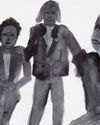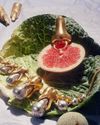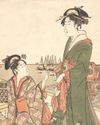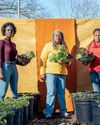
Do you believe the voices are real?” My Chinese guide and I were standing in the Yardang National Geopark, on the border between Gansu Province and the Xinjiang Uighur Autonomous Region in China’s extreme northwest. The nearest town was Dunhuang, 110 miles to the southeast. Enormous yardangs — curving sandstone and mudstone strata carved by winds — towered over us. Others floated on the far horizon.
“You mean the singing sands?” I asked. On my map, an asterisk marked this strange feature of the Kumtag Desert, three miles from Dunhuang. If you throw yourself down the dunes in that place, the air resonates — sometimes like the lowest note on a cello; sometimes like a crack of thunder.
“Not the singing sands,” the guide said. “I mean voices. Like ghosts. Do people in the West think they exist?”
The Chinese pilgrim and scholar Xuanzang wrote in his A.D. 646 book “The Great Tang Dynasty Record of the Western Regions” that in this desert region, travellers often heard singing and shouting, shrieking and crying. Disoriented, they would wander, get lost and die of thirst. More than 650 years later, the 13th-century Italian merchant Marco Polo described the same phenomenon; sometimes the voices would even call a traveler by name. “If you’re thirsty enough, and exhausted, and afraid, I guess you might hear things,” my guide murmured. He was looking away from me, into the maze of eroded landforms. We were tiny as pixels on an Imax screen.
Bu hikaye T Singapore: The New York Times Style Magazine dergisinin August 2020 sayısından alınmıştır.
Start your 7-day Magzter GOLD free trial to access thousands of curated premium stories, and 9,000+ magazines and newspapers.
Already a subscriber ? Giriş Yap
Bu hikaye T Singapore: The New York Times Style Magazine dergisinin August 2020 sayısından alınmıştır.
Start your 7-day Magzter GOLD free trial to access thousands of curated premium stories, and 9,000+ magazines and newspapers.
Already a subscriber? Giriş Yap

Look At Us
As public memorials face a public reckoning, there’s still too little thought paid to how women are represented — as bodies and as selves.

Two New Jewellery Collections Find Their Inspiration In The Human Anatomy
Two new jewellery collections find their inspiration in the human anatomy.

She For She
We speak to three women in Singapore who are trying to improve the lives of women — and all other gender identities — through their work.
Over The Rainbow
How the bright colours and lively prints created by illustrator Donald Robertson brought the latest Weekend Max Mara Flutterflies capsule collection to life.

What Is Love?
The artist Hank Willis Thomas discusses his partnership with the Japanese fashion label Sacai and the idea of fashion in the context of the art world.

The Luxury Hotel For New Mums
Singapore’s first luxury confinement facility, Kai Suites, aims to provide much more than plush beds and 24-hour infant care: It wants to help mothers with their mental and emotional wellbeing as well.

Who Gets To Eat?
As recent food movements have focused on buying local or organic, a deeper and different conversation is happening among America’s food activists: one that demands not just better meals for everyone but a dismantling of the structures that have failed to nourish us all along.

Reimagining The Future Of Fashion
What do women want from their clothes and accessories, and does luxury still have a place in this post-pandemic era? The iconic designer Alber Elbaz thinks he has the answers with his new label, AZ Factory.

A Holiday At Home
Once seen as the less exciting alternative to an exotic destination holiday, the staycation takes on new importance.
All Dressed Up, Nowhere To Go
Chinese supermodel He Sui talks about the unseen pressures of being an international star, being a trailblazer for East Asian models in the fashion world, and why, at the end of the day, she is content with being known as just a regular girl from Wenzhou.